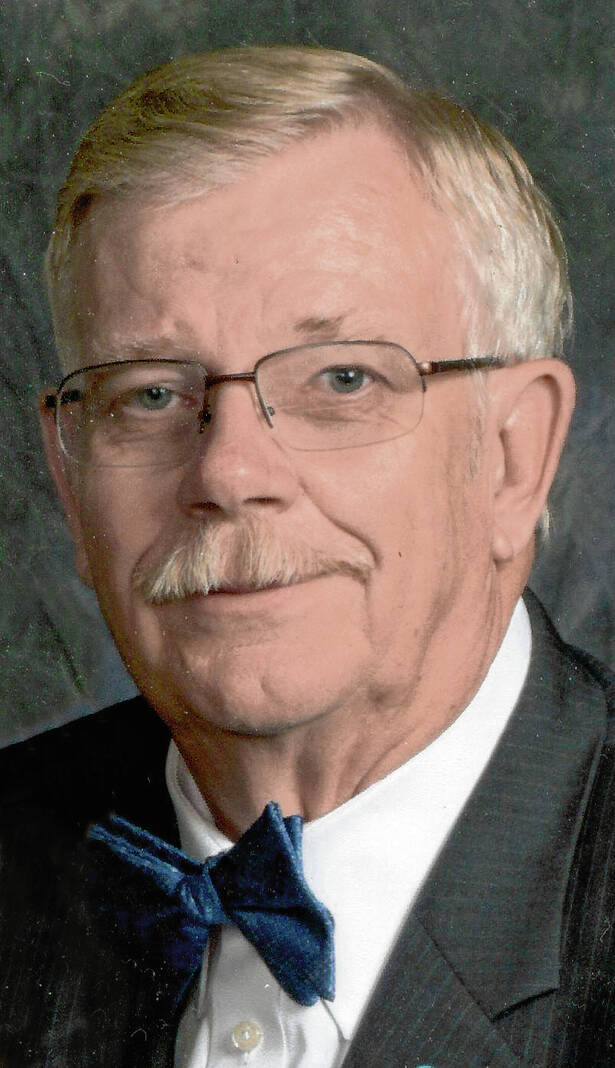It is a matter of discipline with me to avoid listening to political speeches.
They are hardly edifying and the current trend is a pronounced one toward less and less enlightenment each time a politician rises to his legs and starts talking. Last week’s State of the Union address by President Joe Biden accelerated the velocity in that direction if the news reports, all with their own biased spins of course, are indicative.
Instead, I spent the time taking refuge in historical reflection. To avoid total depression when considering this election’s offering of candidates, I found solace in looking backward through our history to find times that were not all that much different from ours. There have been tightly contested and bitterly controversial elections before; 1800, 1824, 1860 and 1876 come to mind.
As I contemplated those elections, what caught my fancy was not the similarity of circumstances but the resemblance of candidate characteristics. Which presidents in the past remind us of our current two?
Former President Donald Trump’s was the easier character to match so I will start with Joe Biden.
My immediate Biden thought turned to James Buchanan. Both served at a crisis time in our nation’s history when we were tearing ourselves apart through vitriolic speech and a tendency toward violence. Buchanan failed miserably in keeping the nation together and my opinion of Biden’s record is no better.
Another similarity is that both men seemed unduly subservient to their cabinet-level and other federal officers. When the cabinet room is overpopulated with extremists and incompetents, that does not portend well. Buchanan’s reputation was to have deferred to his cabinet on all important decisions, and Biden’s track record suggests the same modus operandi as he has a proclivity for doubling down on the most controversial policy ideas the extreme left of his party can dream up.
My list could be longer but getting to Trump is an irrepressible urge.
To find Trump’s historical example, Andrew Jackson’s case proved too good to pass up.
Jackson was viewed as the candidate of the common man, standing against the coastal elites who controlled the presidency. Prior to Jackson, every elected president was either a Virginia planter or a Massachusetts Adams. It was the eastern economic and intellectual aristocracy against the rough-and-ready settlers in what was then called the West, everything past the Appalachians.
At Jackson’s inauguration, his supporters scandalized polite society by tramping through the White House without formal invitation, treating it literally as the “People’s House.” They were the early 19th-century deplorables, surely in love with their guns and their religion.
Old Hickory did not disappoint them as president. He took on the National Bank, the epitome of the “swamp” of that day. He faced down his political opponents, sometimes with physical threats, and caned a presumptive assassin to the point of death.
Trump has never fought a duel; Jackson fought at least three and survived. Nor has Trump ever horsewhipped a United States Senator like Jackson tried. Trump’s weapon of choice is his tongue, a weapon Jackson was not unwilling to use. I won’t quote Jackson here; you can find his most outrageous ones with a simple internet search.
One final similarity is intriguing to consider. Jackson lost the 1824 election but contested the outcome. He claimed the election was stolen from him by East Coast elites. Sound familiar? Now look to his rematch with Adams in 1828, an election he won by a landslide. I will need to wait for November to learn if the same outcome holds.
If my Jackson-Trump comparison has any value, it will be with the MAGA crowd which sees Trump as a populist hero fighting to restore democracy to the common people. The major difference between Trump and Jackson was that Old Hickory was effective in advancing his agenda while Trump can point to precious few political victories during his term.
I had another thought about a Trump historical doppelganger, one that will be more palatable to the Trump-haters. Aaron Burr never became president, not for lack of trying, and he got every bit as much metaphorical hate mail as Trump gets.
Burr was involved in his own election controversy in 1800 when he refused to concede to Thomas Jefferson, the apparent winner. Congress eventually put paid to Burr’s ambition as did Mike Pence to Trump’s.
Burr also was accused of instigating insurrection but acquitted by a jury based on a literal reading of the Constitution’s language on treason. Trump’s insurrection trial may — should — come down to a literal reading of the 14th Amendment. Too bad for Trump that he doesn’t have John Marshall as the presiding judge as Burr did.
Too bad for all of us that we don’t have John Marshall on today’s Supreme Court.
Mark Franke, an adjunct scholar of the Indiana Policy Review and its book reviewer, is formerly an associate vice-chancellor at Indiana University-Purdue University Fort Wayne.





